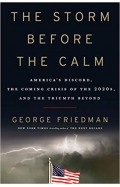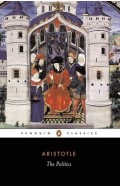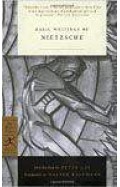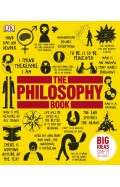Liberalism and Its Discontents
By: Francis Fukuyama
-
Rs 3,775.50
- Rs 4,195.00
- 10%
You save Rs 419.50.
Due to constant currency fluctuation, prices are subject to change with or without notice.
A defence of liberalism by the renowned political philosopher
'We need more thinkers as wise as Fukuyama digging their fingers into the soil of our predicament' The New York Times
Liberalism - the comparatively mild-mannered sibling to the more ardent camps of nationalism and socialism - has never been so divisive as today. From Putin's populism, the Trump administration and autocratic rulers in democracies the world over, it has both thrived and failed under identity politics, authoritarianism, social media and a weakened free press the world over.
Since its inception following the post-Reformation wars, liberalism has come under attack from conservatives and progressives alike, and today is dismissed by many as an 'obsolete doctrine'. In this brilliant and concise exposition, Francis Fukuyama sets out the cases for and against its classical premises: observing the rule of law, independence of judges, means over ends, and most of all, tolerance.
Pithy, to the point, and ever pertinent, this is political dissection at its very best.
A defence of liberalism by the renowned political philosopher
'We need more thinkers as wise as Fukuyama digging their fingers into the soil of our predicament' The New York Times
Liberalism - the comparatively mild-mannered sibling to the more ardent camps of nationalism and socialism - has never been so divisive as today. From Putin's populism, the Trump administration and autocratic rulers in democracies the world over, it has both thrived and failed under identity politics, authoritarianism, social media and a weakened free press the world over.
Since its inception following the post-Reformation wars, liberalism has come under attack from conservatives and progressives alike, and today is dismissed by many as an 'obsolete doctrine'. In this brilliant and concise exposition, Francis Fukuyama sets out the cases for and against its classical premises: observing the rule of law, independence of judges, means over ends, and most of all, tolerance.
Pithy, to the point, and ever pertinent, this is political dissection at its very best.
The Origins of Political Order From Prehuman Times to the French RevolutioN
By: Francis Fukuyama
Rs 4,045.50 Rs 4,495.00 Ex Tax :Rs 4,045.50
Political Order and Political Decay
By: Francis Fukuyama
Rs 4,045.50 Rs 4,495.00 Ex Tax :Rs 4,045.50
Identity: Contemporary Identity Politics and the Struggle for Recognition - (PB)
By: Francis Fukuyama
Rs 1,795.50 Rs 1,995.00 Ex Tax :Rs 1,795.50
The End of History and the Last Man
By: Francis Fukuyama
Rs 3,415.50 Rs 3,795.00 Ex Tax :Rs 3,415.50
Zubin Mehta: A Musical Journey (An Authorized Biography)
By: VOID - Bakhtiar K. Dadabhoy
Rs 892.50 Rs 1,050.00 Ex Tax :Rs 892.50
Identity: Contemporary Identity Politics and the Struggle for Recognition - (PB)
By: Francis Fukuyama
Rs 1,795.50 Rs 1,995.00 Ex Tax :Rs 1,795.50
The Storm Before the Calm - Paperback
By: George Friedman
Rs 3,415.50 Rs 3,795.00 Ex Tax :Rs 3,415.50
The Quest For Meaning: Developing A Philosophy Of Pluralism
By: Tariq Ramadan
Rs 1,185.75 Rs 1,395.00 Ex Tax :Rs 1,185.75
The Basic Writings of Nietzsche
By: Peter Gay/Sigmund Freud
Rs 3,865.50 Rs 4,295.00 Ex Tax :Rs 3,865.50
Identity: Contemporary Identity Politics and the Struggle for Recognition - (PB)
By: Francis Fukuyama
Rs 1,795.50 Rs 1,995.00 Ex Tax :Rs 1,795.50
The Storm Before the Calm - Paperback
By: George Friedman
Rs 3,415.50 Rs 3,795.00 Ex Tax :Rs 3,415.50
No recently viewed books available at the moment.
Zubin Mehta: A Musical Journey (An Authorized Biography)
By: VOID - Bakhtiar K. Dadabhoy
Rs 892.50 Rs 1,050.00 Ex Tax :Rs 892.50
The Origins of Political Order From Prehuman Times to the French RevolutioN
By: Francis Fukuyama
Rs 4,045.50 Rs 4,495.00 Ex Tax :Rs 4,045.50
Political Order and Political Decay
By: Francis Fukuyama
Rs 4,045.50 Rs 4,495.00 Ex Tax :Rs 4,045.50
Identity: Contemporary Identity Politics and the Struggle for Recognition - (PB)
By: Francis Fukuyama
Rs 1,795.50 Rs 1,995.00 Ex Tax :Rs 1,795.50
The End of History and the Last Man
By: Francis Fukuyama
Rs 3,415.50 Rs 3,795.00 Ex Tax :Rs 3,415.50
Identity: Contemporary Identity Politics and the Struggle for Recognition - (PB)
By: Francis Fukuyama
Rs 1,795.50 Rs 1,995.00 Ex Tax :Rs 1,795.50
The Storm Before the Calm - Paperback
By: George Friedman
Rs 3,415.50 Rs 3,795.00 Ex Tax :Rs 3,415.50












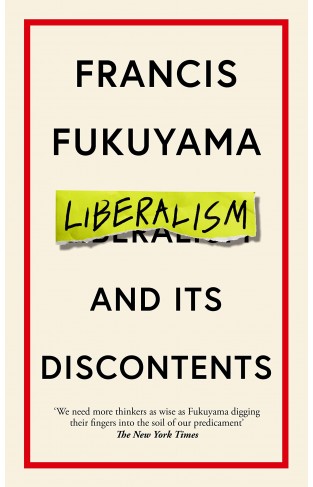
-120x187.jpg?q6)
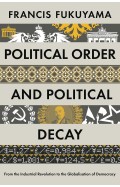
-120x187.jpg?q6)
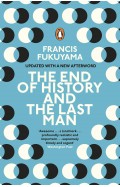
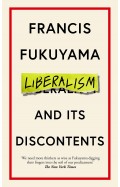
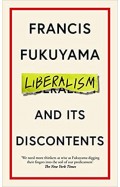
-120x187.jpg?q6)





